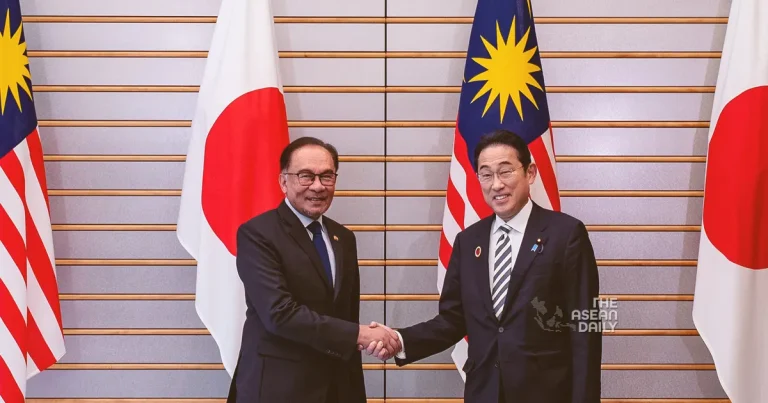16-12-2023 (TOKYO) Leaders from Southeast Asia and Japan will reportedly agree to strengthen “maritime security cooperation” according to a draft statement obtained by AFP from a summit that commenced on Saturday (Dec 16). The summit takes place against the backdrop of escalating tensions in the South China Sea, with China asserting its claims over the vast waterway, which serves as a crucial trade route. China’s increasingly aggressive actions in disputed areas have raised concerns among regional nations and Washington.
Japan, a close ally of the United States and also involved in territorial disputes with China, has been bolstering its military spending and enhancing security cooperation in the Asia-Pacific region, including with South Korea and Australia.
The final statement draft of the weekend summit reveals that Japan and the Association of Southeast Asian Nations (ASEAN) will commit to “strengthening security cooperation, including maritime security cooperation.”
On Wednesday, Japan expressed “serious concern” over recent “dangerous actions” following a tense confrontation between Philippine and Chinese vessels at disputed reefs. The incident involved a collision and Chinese ships using water cannons. Tokyo also expressed support for the Philippines’ long-standing objections to unlawful maritime claims, militarization, coercive activities, and the threat or use of force in the South China Sea.
Last month, Japan agreed to assist the Philippines in acquiring coastguard vessels and providing a radar system. The two countries are also discussing the possibility of troop deployments on each other’s soil. In a meeting with Malaysian Prime Minister Fumio Kishida, Japanese Prime Minister Anwar Ibrahim announced the deepening of strategic ties and a commitment of 400 million yen (US$2.8 million) for “warning and surveillance” equipment.
Kishida emphasized Japan’s commitment to promoting cooperation with ASEAN nations, including Malaysia, in order to maintain and strengthen a free and open international order based on the rule of law and to ensure a world that protects human dignity.
The South China Sea dispute involves Malaysia, the Philippines, Vietnam, Brunei, and Taiwan, which all have overlapping claims in the region.
In September, ASEAN militaries conducted their first-ever joint exercises, focused on non-combat activities such as disaster relief and maritime patrols, as emphasized by host country Indonesia.
When asked about the ASEAN summit, China’s foreign ministry stated on Friday that Beijing believes cooperation should foster mutual trust among regional countries and promote common development. The ministry spokesperson added that relevant countries should pursue actions conducive to regional peace and stability, while avoiding targeting third parties.
“ZERO EMISSION COMMUNITY”
During the summit, Japan is expected to highlight energy cooperation, including its Asian Zero Emission Community (AZEC) initiative. A virtual meeting for AZEC, scheduled for Monday, will be attended by Australian Prime Minister Anthony Albanese.
While Japan is working to boost its renewable energy sector, it has faced criticism from environmental groups for providing significant public financing for fossil fuel projects in Asia. Japan also seeks to promote the export of technologies aimed at reducing emissions from coal plants, such as co-firing with ammonia and carbon capture. However, critics argue that these methods are unproven and costly.
The Climate Action Network stated this month that Japan’s financing of fossil fuel-based energy projects across the continent hinders the transition to renewable energy. The organization claimed that ammonia fails to significantly reduce emissions and jeopardizes Japan’s decarbonization efforts and the phase-out of fossil fuels.
ASEAN consists of ten member states: Brunei, Cambodia, Indonesia, Laos, Malaysia, Philippines, Singapore, Thailand, Vietnam, and Myanmar. The summit marks 50 years of Japan’s ties with ASEAN. Myanmar is a member of ASEAN, but its junta leaders have been banned from participating in high-level meetings since they failed to implement an agreed five-point peace plan following the 2021 coup in which they seized power.




